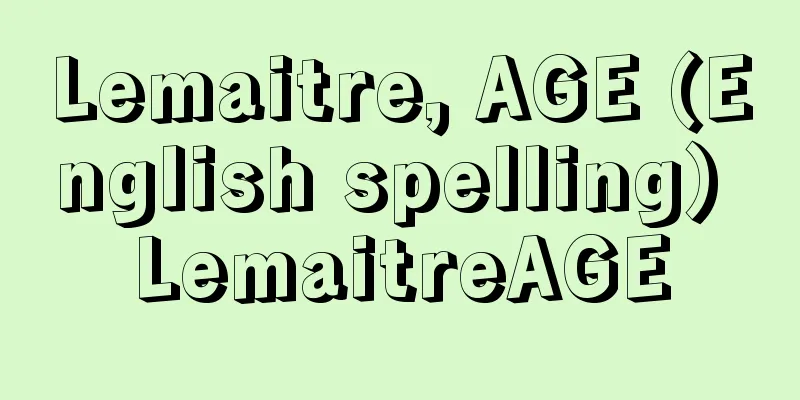Thanks commotion - Thanks commotion

|
...A frenzied popular movement that took place mainly in the Kinai and Tokai regions from August 1867 (Keio 3) to April of the following year, triggered by the descent of sacred talismans from Ise Shrine. The name comes from the phrases chanted by the people while dancing, such as "Eejanaika," "Yoijainaika," and "Iijainaika," but during the Keio period it was often called O-kudari (Suruga, Omi), Ofuda-dori (Totomi), Okage (Ise, Kawachi), Okage Sodo (Ise), Okage Festival (Shinano), O-odori (Awa, Bizen), Suzume-odori (Awaji), Choitosa Festival (Shinano), and Yachoro Festival (Shinano). It was only after 1931 that "Eejanaika" became established as an academic term in the academic world. ... *Some of the terminology used in relation to the "Okage Sodo" is listed below. Source | Heibonsha World Encyclopedia 2nd Edition | Information |
|
…1867年(慶応3)8月から翌年4月ころにかけ,伊勢神宮の神符等が降下したということを契機に,畿内・東海地区を中心におこった狂乱的な民衆運動。名称は民衆が踊りながら唱えた文句に〈ええじゃないか〉〈よいじゃないか〉〈いいじゃないか〉等の語があったためであるが,慶応当時はお下り(駿河,近江),御札降り(遠江),おかげ(伊勢,河内),おかげ騒動(伊勢),おかげ祭(信濃),大踊(阿波,備前),雀踊(淡路),チョイトサ祭(信濃),ヤッチョロ祭(信濃)などと呼ばれることが多かった。学術用語として〈ええじゃないか〉が学界に定着したのは1931年以後のことである。… ※「おかげ騒動」について言及している用語解説の一部を掲載しています。 出典|株式会社平凡社世界大百科事典 第2版について | 情報 |
>>: Thanks Dance - Thanks Dance
Recommend
Congressman
...As a result, presidential candidates are often...
pigeon's-foot
…The leaves are opposite and divided into three l...
Croquant Rebellion - Croquant Rebellion
In 1593 and again in the 1630s and 1640s, peasant ...
North China Development Company
...Companies engaged in colonization and developm...
Tapuanu
...The exact same female figures are always found...
Aquilegia longissima - Aquilegia longissima
...Because interspecific hybridization is easy wi...
Veronicastrum sachalinense (English spelling) Veronicastrum sachalinense
… [Kei Yamazaki]. … *Some of the terminology that...
Hayato Ikeda
Politician. Born in Hiroshima Prefecture. After g...
Tateyanagi Bay
Year of death: 1844.5.29 (1844.4.13) Year of birth...
Oriolus chinensis (English spelling) Orioluschinensis
...The birds of this genus also live in the treet...
Polar coordinates
Coordinates expressing a point on a plane by the ...
Acteon - Acteon
...Japan's first modern scientific map, creat...
Workplace - Workplace
〘 noun 〙 A place to work. A place where a person w...
The Tale of the Chrysanthemums
A Shinpa play. Iwaya Shinichi adapted the novel p...
Efflux - Efflux
... The Khoisan language family is characterized ...









